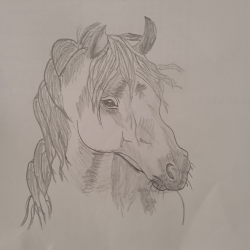

The ongoing Hijab controversy, initiated at a college in Karnataka is now dependent on the final judgment of the High court. While looking at the previous decisions taken in this respect by the various judicial benches in our country. Those premises supporting the Hijab at college won’t still stand as stronger as it looks. The constitution can only allow the citizen of India to practice those customs and tradition which is an integral part of the religion or culture. On the other hand, looking at the current scenario, a specific dress code won’t violate the religious freedom of an individual.
Previous Cases-
This is not the first time when religious conflict has arisen saying it’s our freedom that is backed by the constitution. On December 15th, 2016 very similar judgment was passed by the Supreme Court of India. Over the Muhammad Zubair case, for having a beard in the Indian Air Force. However, Supreme Court rejected the plea against the suspension of the officer from the Indian Air Force.
Over the Muhammad Zubair judgment, the Supreme Court said, Dress codes are not aimed to create any difference in terms of religion rather create equality and discipline. Moreover, the Supreme court supported the regulation of clean shaved in the Air Force.
Looking at another high profile case
Supreme Court on August 11th, 1986 has interpreted the Bijoe Emmanuel vs. State of Kerala case in terms of religious freedom. Supreme Court condemned the suspension of 3 children for not singing the National Anthem. The court further stated that these 3 children belong to Jehovah's belief, on the other hand, they respected the national anthem by standing however not singing was not disrespecting the anthem.
Conclusion-
Justice Sah says that if someone without any authority decides the dress code of any institution can be challenged in court. However, if any organization decides the dress code for a certain motive will be followed as well as respected by the people under the organization in any way and that can not be challenged in terms of religious freedom.
Justice Sah further says that nowhere does Islam says that one can not travel without Hijab. Most of the rights given to us are the subordinates of the constitution. Government can form laws to control those rights but Justice Sah believes that Hijab is not an integral part of Islam.
Moreover, it can be possible that people can maintain the decorum of the institution as well as their religious beliefs together too. For instance, Sikhs wear turbans according to their religion and they maintain the dress code as well.


